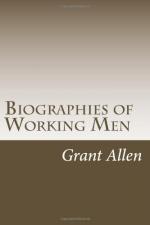During these years, Herschel also seems to have given much attention to the organ, which enabled him to make his next step in life in 1765, when he was appointed organist at Halifax. Now, there is a great social difference between the position of an oboe-player in a band and a church organist; and it was through his organ-playing that Herschel was finally enabled to leave his needy hand-to-mouth life in Yorkshire. A year later, he obtained the post of organist to the Octagon Chapel at Bath, an engagement which gave him new opportunities of turning his mind to the studies for which he possessed a very marked natural inclination. Bath was in those days not only the most fashionable watering-place in England, but almost the only fashionable watering-place in the whole kingdom. It was, to a certain extent, all that Brighton, Scarborough, Buxton, and Harrogate are to-day, and something more. In our own time, when railways and steamboats have so altered the face of the world, the most wealthy and fashionable English society resorts a great deal to continental pleasure towns like Cannes, Nice, Florence, Vichy, Baden, Ems, and Homburg; but in the eighteenth century it resorted almost exclusively to Bath. The Octagon Chapel was in one sense the centre of life in Bath; and through his connection with it, Herschel was thrown into a far more intelligent and learned society than that which he had left behind him in still rural Yorkshire. New books came early to Bath, and were read and discussed in the reading-rooms; famous men and women came there, and contributed largely to the intellectual life of the place; the theatre was the finest out of London; the Assembly Rooms were famous as the greatest resort of wit and culture in the whole kingdom. Herschel here was far more in his element than in the barracks of Hanover, or in the little two-roomed cottage at rustic Doncaster.
He worked very hard indeed, and his work soon brought him comfort and comparative wealth. Besides his chapel services, and his later engagement in the orchestra of the Assembly Rooms, he had often as many as thirty-eight private pupils in music every week; and he also composed a few pieces, which were published in London with some modest success. Still, in spite of all these numerous occupations, the eager young German found a little leisure time to devote to self-education; so much so that, after a fatiguing day of fourteen or sixteen hours spent in playing the organ and teaching, he would “unbend his mind” by studying the higher mathematics, or give himself a lesson in Greek and Italian. At the same time; he was also working away at a line of study, seemingly useless to him, but in which he was afterwards to earn so great and deserved a reputation. Among the books he read during this Bath period were Smith’s “Optics” and Lalande’s “Astronomy.” Throughout all his own later writings, the influence of these two books, thoroughly mastered by constant study in the intervals of his Bath music lessons, makes itself everywhere distinctly felt.




